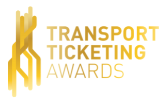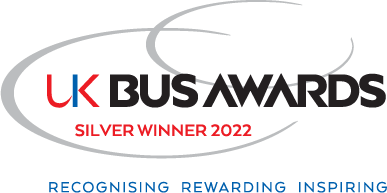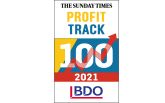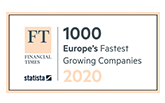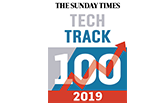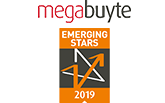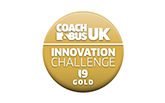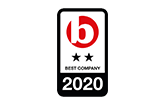Ticketer Founder John Clarfelt and Group CCO Solveig Ellila Kristiansen, were delighted to recently discuss expanding our portfolio and upcoming plans for Ticketer Group with Passenger Transport.
 Read the full feature written by Robert Jack, Managing Editor below, or visit Passenger Transport.
Read the full feature written by Robert Jack, Managing Editor below, or visit Passenger Transport.
It was 12 years ago that Ticketer burst onto the scene, providing Electronic Ticket Machines (ETMs) and associated technology to Britain’s bus operators. Relishing the role of underdog, and spurred on by its charismatic founder, John Clarfelt, the company quickly gained market share from established players who many perceived as complacent.
Today Ticketer is a major player in the UK’s bus ticketing systems market. The expansion minded company continues to grow, diversifying and targeting new markets. This ambition was demonstrated by its 2019 acquisition of FARA, a Norwegian company which also has offices in Poland, Sweden, Finland and Denmark. FARA (an old Norse word for travel) also offers ticketing systems – and much more besides.
FARA shares the same core philosophy as Ticketer, of making travel easier for passengers. Through electronic ticketing machines, back office software and passenger facing apps, it focuses on providing real time information for use on board, online and on mobile to increase the use of public transport.
 Last month I had an online chat with John Clarfelt, who these days has a roving role with the job title of ‘Ticketer Founder’. While Ticketer is no longer the underdog, he’s eager to show that complacency is not creeping in. “I tell everyone ‘never get complacent, because the day you get complacent is the day you’re dead'”, he says. “It’s really easy to help the underdog. Our operators helped us grow to this stage and we will be forever thankful for that. And we owe it to them to still be the underdog, to still strive to be better, to still keep developing.”
Last month I had an online chat with John Clarfelt, who these days has a roving role with the job title of ‘Ticketer Founder’. While Ticketer is no longer the underdog, he’s eager to show that complacency is not creeping in. “I tell everyone ‘never get complacent, because the day you get complacent is the day you’re dead'”, he says. “It’s really easy to help the underdog. Our operators helped us grow to this stage and we will be forever thankful for that. And we owe it to them to still be the underdog, to still strive to be better, to still keep developing.”
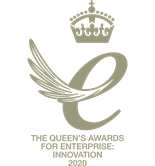 Ticketer prides itself on its record as an innovator. Clarfelt says it was a very emotional day last year when the company received the prestigious Queen’s Award for Enterprise, Innovation. And he says that the need to keep innovating and improving its offer to customers was one of the reasons it bought FARA.
Ticketer prides itself on its record as an innovator. Clarfelt says it was a very emotional day last year when the company received the prestigious Queen’s Award for Enterprise, Innovation. And he says that the need to keep innovating and improving its offer to customers was one of the reasons it bought FARA.
He explains: “I think we are good at what we do over here, and that comes down to having a great relationship with our operators who tell us what really is needed, and we try to deliver it for them.”
“We’ve had that, but our view was that there were going to be connected cities and MaaS [Mobility as a Service], and all of those things. And, rather than grow into that organically like we did with Ticketer, we decided to go out there and find a really good mirror supplier who already had experience of that. That’s why we went for FARA, because they’ve got great experience of connected cities.”
He continues: “We want to expand abroad because we have got a lot of coverage in the UK. International markets have different requirements, something we feel would really benefit the UK as this is the way the sector looks to be going.”
Ticketer’s mission is now to “make public transport personal”, and this requires the company to be ever mindful of the needs of the end user. “My greatest strength is a complete lack of knowledge of anything,” Clarfelt declares. “So I just sit there thinking ‘what would I want as a passenger?’ And what I want as a passenger is absolute ease. I want to know where my public transport is.”
He cites the example of bus loading data during the pandemic as an example of what can be achieved when people focus on the needs of passengers: “When I first joined Ticketer, I said that my dream is that you should have on a bus, ‘this bus is 80% full but don’t worry because there’s one behind and it’s four minutes away and it’s got space’. Everyone laughed at me. You know what, during Covid, we developed an occupancy feed and were displaying live on the front of those buses, and on apps, ‘this bus has got four seats left’.”
Clarfelt hasn’t stopped dreaming up ways to improve the supply of information to passengers. For example, London Hammersmith Bridge is currently closed to traffic and he’d like to see e-scooters help bus users to complete the final leg of their journey, with real-time information on their availability fed to bus passengers like himself via apps and on-vehicle displays. “That’s what helps make people travel on public transport and we’ve got to co-ordinate at all,” he says. “FARA have a huge experience of that and that will come to the UK.”
FARA’s portfolio is much broader than Ticketer’s. It also offers ticketing solutions – but in addition to that it provides complete solutions to Real Time Information. The client base is different too. Whereas Ticketer’s customers are private sector bus operators in the UK, FARA’s are predominantly municipalities in the Nordic region.
Today, the combined group employs around 270 people. FARA, which employs around two-thirds of them, is based in the Norwegian city of Trondheim. Ticketer’s HQ is in Hungerford, Berkshire, although its people are scattered around the country. “We actually discovered we could be more efficient distributed than wandering into an office,” Clarfelt explains.
Ticketer and FARA continue to operate under separate brands. Ticketer Group is happy to let them merge steadily over time rather than force the process.
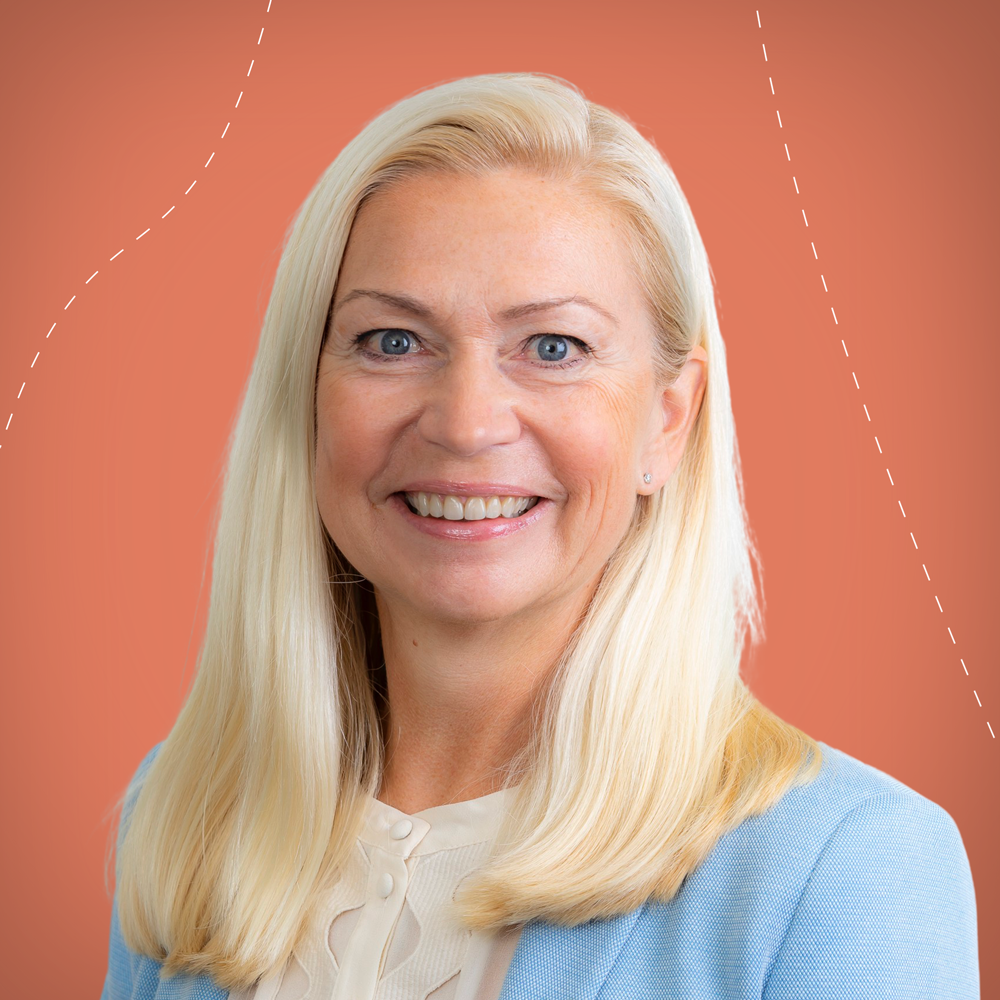 We are joined on our Teams call by Solveig Ellila Kristiansen, Ticketer Group’s Chief Commercial Officer. Kristiansen blends engineering expertise and commercial experience having held senior roles at a number of international IT companies, including general manager for Dell Norway and Iceland.
We are joined on our Teams call by Solveig Ellila Kristiansen, Ticketer Group’s Chief Commercial Officer. Kristiansen blends engineering expertise and commercial experience having held senior roles at a number of international IT companies, including general manager for Dell Norway and Iceland.
Explaining the role of the bus in connected cities, she says: “The bus is like a detector. It’s sending data, receiving data, communicating to the passenger, to the bus driver, to the traffic control – and that live thing is even becoming much more now with 4G and 5G. We actually have a superhighway of communication to the bus … You can think of the bus as part of a big network. The bus is going to be the centre, and I think that’s going to take more cars away from the streets.”
Ticketer aims to provide operators with the solutions they need to fully participate in this hyper-connected world. “Our job is to stitch public transport together for the passenger,” says Clarfelt. “You put it all together and you give your operators the tools to run more efficiently.”
For example, he says that Ticketer will tap into the vast amount of data it collects in order to provide new services to its customers. This could enable them to put a system in place that takes a vehicle off a high frequency route on a sunny day, when people are happier to walk, and reallocates it to a beach-bound service that is experiencing increased demand.
“If we can squeeze 3% more operating benefit out by knowledge of data and so on, that’s going to add 50% to some people’s margin,” he says. “So it’s taking this wealth of data and actually feeding it back in a way that people can use, rather than leaving it for data scientists. It’s there now but you can’t use it. If I’m a small operator sitting in an office I need something quick and easy that I can look at, and we’ve got to serve it up in that way. We’re looking at very much utilising the knowledge on our hub.”
Kristiansen shares this goal. FARA bills itself as an innovative partner, ready and willing to fulfil any requirements its clients have in relation to data. “All that needs to work every day for the passengers to be happy,” she says. “It’s quite an exciting journey to be on for us because they test us. I think we will see big changes in this industry in the coming years.”
Recent innovations that have been demanded by FARA’s clients include integration with e-scooters, alarms that alert students when they have arrived at their stop, and a ticketing system for autonomous buses.
Ticketer and FARA believe they can offer seamless solutions for multi-operator, multi-modal travel and MaaS. In Clarfelt’s view, MaaS as a concept has been “oversold”, but he believes that a multi-modal transport utopia can be achieved over time, through incremental improvements and integration.
“I never understood what MaaS was,” he says. “It was this great, amorphous thinking … But we are getting there because things are starting to come together.” Clarfelt believes that tapping a card on a reader as part of a multi-modal solution (Tap On / Tap Off) is one of the foundation blocks of MaaS. Kristiansen agrees, pointing out that capping fares can give users confidence by ensuring that they receive the best vale fare for the journeys they have made. “I think that’s where we have to go,” she says. “Really motivate people back to public transport.”
Ticketer is meanwhile keen to help integrate Demand Responsive Transport with mainstream public transport. Clarfelt observes that there are different types of DRT. Some are more like a shared taxi, offering point-to-point journeys. Others require users to meet at a nearby ‘stop’ and feed into mainstream public transport. Clarfelt says this approach minimises the cost of providing DRT (shorter services, fewer vehicles) while boosting the viability of public transport (more passengers). But this requires a seamless ticketing and information proposition that instills faith in its users. Can they purchase a single ticket that covers both legs of their journey, and can it be done on a system that is easy to administer for the operator(s)? Can a bus be held up a minute to enable a partner DRT service to integrate with it? Ticketer, working with DRT tech firms Via and Padam Mobility, is seeking answers to these questions.
Clarfelt explains: “It’s those sort of small things that aren’t expensive that make a difference and get you towards what we all want, which is more people on bus.”


